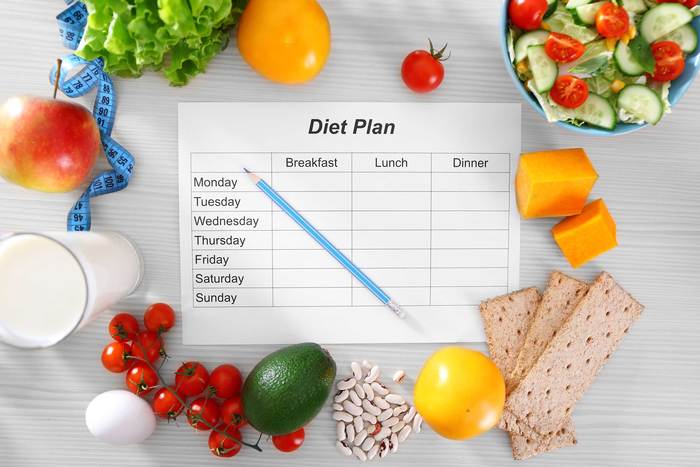A new year often signifies a fresh start for many people. For some, this means starting an exercise routine, losing weight or following a healthier diet. It is important to remember that our diet pattern has the power to reduce the risk of chronic diseases over our lifetime and together with a healthy lifestyle it is extremely important to prevent illness.
Very often, within a few weeks of setting our new year health and wellness resolutions, we realise that they are unsustainable due to multiple reasons like work and family commitments, inability to take time off our busy schedules, failure to prioritise our health etc. and we end up breaking our resolutions. Thus we find ourselves making the same resolutions year after year. To break that cycle, we need to make resolutions that can not only improve health but also be followed in our day to day lives. The secret is to set simple and easy goals that are easy to follow and are also sustainable.

Here are some examples of attainable and sustainable healthy eating resolutions:
Goal No 1: Eat out less often
During peak working days and holidays, people eat out a lot at restaurants or other roadside shops due to work demands and lack of time to cook meals. When you eat out, you have less control over what you are actually eating. Moreover, a kind of addiction develops to the outside food, ultimately leading to consuming extra fat, salt, and sugar on a daily basis. Try to avoid or minimise the consumption of outside foods.
Goal No 2: Reduce your added sugar intake, little by little
Added sugars are sugars added during the making of processed (packaged) food and drinks and the sugar we add to our home-made beverages and dishes. Added sugar should be cut down gradually as it causes serious health issues, including diabetes, obesity, heart disease, high triglyceride levels and low HDL (good) cholesterol levels.
Goal No 3: Add veggies to your breakfast
One health-protective habit is to fill half of every plate or bowl with non-starchy veggies. For most people that is easier to do for lunch and dinner than for breakfast. So try to incorporate one serving (that is 80 grams) of vegetables in your breakfast meal.
Goal No 4: Eat two cups of fruits
Fruits are loaded with antioxidants, vitamins and nutrients. High fibre in fruits helps to regulate body metabolism. It is advisable to consume at least 2 cups of fruits (that is 150 – 200 grams) daily.
Goal No 5: Incorporate more probiotics and prebiotics into your diet
Prebiotics are natural, non-digestible food components that are linked to promoting the growth of beneficial bacteria in your gut. The best choices are bananas, onions, garlic, leeks, asparagus, artichokes, soybeans, and whole-wheat bread. Probiotics are active cultures that help change or repopulate intestinal bacteria to balance gut flora. Consuming probiotics may boost immunity and improve overall gut health and the best sources are yoghurt, kefir, kimchi and sauerkraut. Having a combination of prebiotics and probiotics in our diet can be a very powerful step to improving our overall health.

Simple tips for a healthier diet and lifestyle
- Drink at least 1.5 litres to 2 litres of water per day
- Follow mindful eating, that is chew food properly, eat slowly and avoid watching any screen/gadgets while eating
- Aim to eat five servings of fruits and vegetables every day; add more colour in your meals with plant-based foods
- Include whole grains instead of refined ones
- Say no to junk foods, processed and preserved foods which are high in trans fat, preservatives, salt and sugar
- Read the food labels and choose foods that are low fat, fat-free, no added sugar, zero trans fat and no preservatives
- Try to include small, healthy meals; do not skip meals especially your breakfast
- Aim for good quality sleep of around 7-8 hours per day
Setting small, sustainable, realistic goals is really the key to success in making habit changes. Any simple diet change is easier if we take slow and small steps. Resolve to make a few small resolutions this year and then just watch how far you go. If you or your loved ones have been diagnosed with heart disease, we recommend that you consult your dietician or your healthcare team to get guidance on the most relevant diet goals for your health condition.
Healthy diet, adequate exercise, sufficient sleep and well-managed stress levels together help to enhance our health and the quality of life. So go ahead and set some simple and achievable goals for a healthy body and mind. Be in the present, avoid distractions, savour every bite and enjoy every meal!